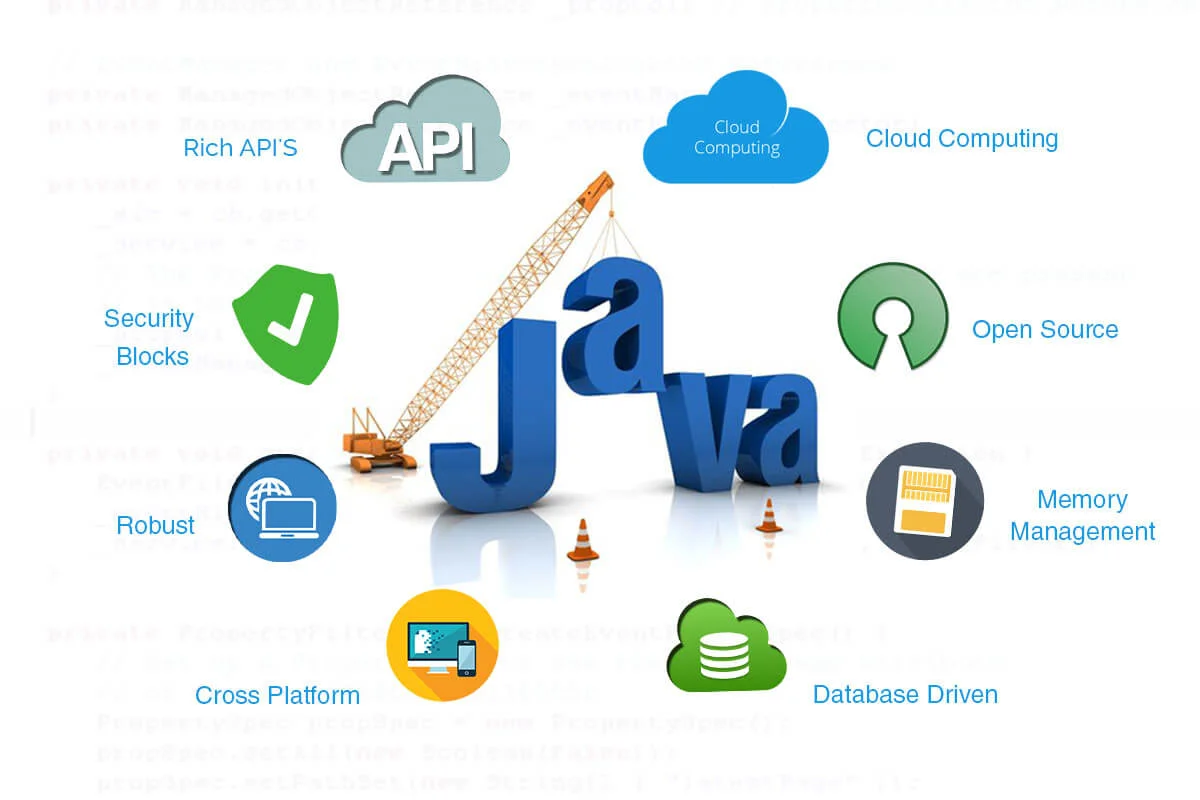
Java is today highly used to develop software for any kind of electronic device. Java development is the most in-demand service available to businesses at the moment since these businesses need to construct their applications. It allows businesses to design applications that are compatible with every device. These applications are a certain way to take your company to the next level.
What exactly is Java?
Java is a general-purpose programming language that may be used in the development of a wide variety of applications, such as desktop, online, and business software as well as games. Java is made up of two components that are Java compiler and Java runtime environment. These components work together to create the Java virtual machine, abbreviated as JVM. The source code is written in the Java programming language, and the compiler takes this code and converts it into byte code instructions that any JVM can run and execute.
Compilation, rather than interpretation, is the primary mode of operation for Java, much as it is for C++. Since the Java Virtual Machine provides instructions on how to run code on every individual architecture, Java code may be executed on any device as long as it has the Java Virtual Machine downloaded. Java development services leverages advanced Agile and DevOps principles while handling the complexity of software development with greater assistance and dedication. It uses a collaborative approach to work on your projects.
In general, it is an invaluable resource for businesses that want to develop applications of the highest possible quality that can be used on every kind of device. Because of its adaptability, Java is one of the most popular choices among developers when they are tasked with the task of developing apps that are capable of running on more than one platform. Java is often used for corporate applications because of its renowned security capabilities. This is one reason why Java is so popular.
What makes Java such a strong competitor?
Application frameworks are comprehensive sets of principles and standards that provide platforms, tools, and programming environments to solve the design, integration, speed, safety, and dependability problems associated with distributed and multi-tiered systems. These concerns may be addressed by application frames. The display services, server-side processing, session management, company logic framework, app information caching, app logic, application persistence, operations, security, and logging services for applications are all components that are included in an application's framework.
1. Coordinating without the discomfort using AJAX
A sophisticated mechanism known as AJAX, which stands for Asynchronous JavaScript and XML, may be used to create coordination that is smooth and unobtrusive between the many parts that make up a web page. Web developers can construct dynamic, responsive websites with the help of AJAX. These websites may update and refresh their information without having the user refresh the page entirely. The user can continue engaging with the website while the information is being obtained thanks to AJAX, which accomplishes its tasks by making requests to the server in the background. Because of AJAX, the client and the server can have an open dialogue with one another. The AJAX call is executed, which then sends a request written in XML to a script running on the server.
2. The comprehensive support for modules for apps with J2EE
Developers can rapidly and painlessly create new applications that are capable of interacting with pre-existing systems with the assistance of J2EE modules. These modules have been developed to be very scalable, which enables them to manage significant volumes of data as well as traffic. In addition, they provide a great degree of configurability, which enables programmers to mold them to the particular requirements of the applications they are working on. When taken as a whole, the module support that is included in J2EE is a strong tool for developers who want to construct sophisticated systems for business use.
3. Quality assurance to facilitate the creation of dependable web apps
The process of developing a functional web application is a difficult one that takes a great deal of focus on the specifics. Making certain that the program's quality is maintained throughout its development is among the most essential steps in producing a web application that will be a commercial success. Java, together with software testing and validation of each component of the program (from the user interface on the front end to the code on the back end), may be used to achieve this goal.
4. Reduced time and money spent on product development
In every project, no matter how large or how little, having a short development time and saving money on costs are key elements. The need for solutions that are both prompt and economical has resulted in the development of many different technologies and processes, such as Agile and Lean that emphasize productivity and efficiency. Project teams can interact more efficiently to keep to tight timetables while still producing excellent outcomes if they embrace strategies such as these. Developers can produce applications of a higher quality, in a shorter period, and at a lesser cost when they use Java. This is beneficial not just for the developer, but also for the customer.
5. Memory operations are carried out automatically
The idea of automated memory execution is an interesting one that is gaining more and more attention in the realm of computer science. In its most basic form, it entails the use of software to automate the process of running a program or executing a set of instructions from memory, without calling for any kind of participation from a human being. This has the potential to be of tremendous assistance in circumstances in which a large number of identical actions need to be carried out repeatedly. For instance, in the industrial sector, automated memory execution may be used to regulate the equipment and make certain that each stage of the production process is carried out most effectively and accurately possible. In the business of finance, it may be put to use to automate the process of carrying out transactions in response to a variety of different market situations. One of the primary reasons why Java is such a widely used programming language in the modern day is because of its automatic memory execution.
6. It offers an easy learning curve to study and set up
The tools and servers that were created on top of the building scalable Java application frameworks offer a programming paradigm together with agile development and runtime environment to create user-centric as well as application-centric Web Services. The fact that Java is an approachable programming language for novices is one of the most important benefits offered by this platform. The accessibility of free online courses and tutorials is another factor that facilitates the acquisition of new technological competencies. People are now able to explore new chances and develop their abilities as a result of the simplicity with which technology may be learned and installed. This has made it accessible to everyone. Not only do Java technologies save waste, but they also save time.
Bottom Line
Java has emerged as a leading contender among programming languages used for the creation of software applications all over the world. Overall, Java's success is well-deserved, and selecting it for your next development project is a wise option that will offer you a language to work with that is dependable, adaptable, and effective.



